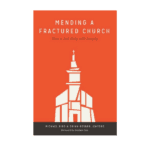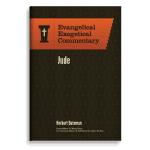
When the Apostle Paul wrote his letter to the Ephesian church, he was writing to an audience living in a metropolitan city. Since Ephesus was a major port city and trade center, the cultural milieu within the city was ethnically and religiously diverse. Though Paul didn?t speak to any specific local issues within the Ephesian church, he does address some concrete problems related to the the tensions felt by the church in its particular location.
The ecclesiastical comments found within Ephesians are rich and unmatched elsewhere in Paul?s writings. The reconciling work of Christ has created a new community of believers made up of diverse people groups. This unity should surpass all worldly barriers, but in reality, we often fall short. In a modern society that is marked by stark division between people groups, Paul?s message of unity is more critical than ever.
In Ephesians: Verse by Verse, Grant Osborne unpacks Paul?s doctrine of the church and shows us what is means for us today. Here?s an excerpt from the section on 2:11?22:
Reconciliation is the social side of the salvation process, describing how two estranged parties could be brought together and peace between them achieved. Paul stresses often that the act of God in Christ has made this possible. The generating force is God, who brought us to himself by sending his Son to die on the cross in our stead, redeeming us so that our sins could be forgiven. The primary barrier to reconciliation is not social but religious, as sin has estranged both Jew and Gentile from God. While Ephesians 2:1?3 describes the sin of the Gentiles, the Jewish people were equally separated from God: They had rejected their Messiah, and their sins were if anything more egregious (see Rom 2:1?3:8). The death of Christ as an atoning sacrifice made reconciliation equally possible for the two groups.
Here Paul extends this image to the reconciliation of all groups with one another. Since they are reconciled to God, Jews and Gentiles are reconciled to each other ?in one body??another way of saying that Christ has created ?in himself one new humanity?(Eph 2:15b). The unity between enemy people groups has been accomplished only in Christ and by Christ, who has ?put to death their hostility? toward one another. By being killed Christ has killed the differences between us. His blood sacrifice has removed the terrible product of sin: human hatred. All barriers, both religious and social, have been set aside, and peace can finally come, first between ourselves and God and then among ourselves. This hardly means that all Christians are immune from racial hostility. We have all seen too much of it in the church, as well as in society. However, it does mean that God especially intends for us to become models of racial and ethnic harmony, and that Christ and the Spirit are at work in God?s people to achieve just that.
In Ephesians: Verse by Verse, Grant R. Osborne offers a clear exposition of this complex book, explaining what it meant in its first-century setting and how it applies to us today. Throughout he focuses on the exalted Christ who is lord of all, and the unity of the church as the new creation in Christ.
Ephesians: Verse by Verse is now available in all formats.






